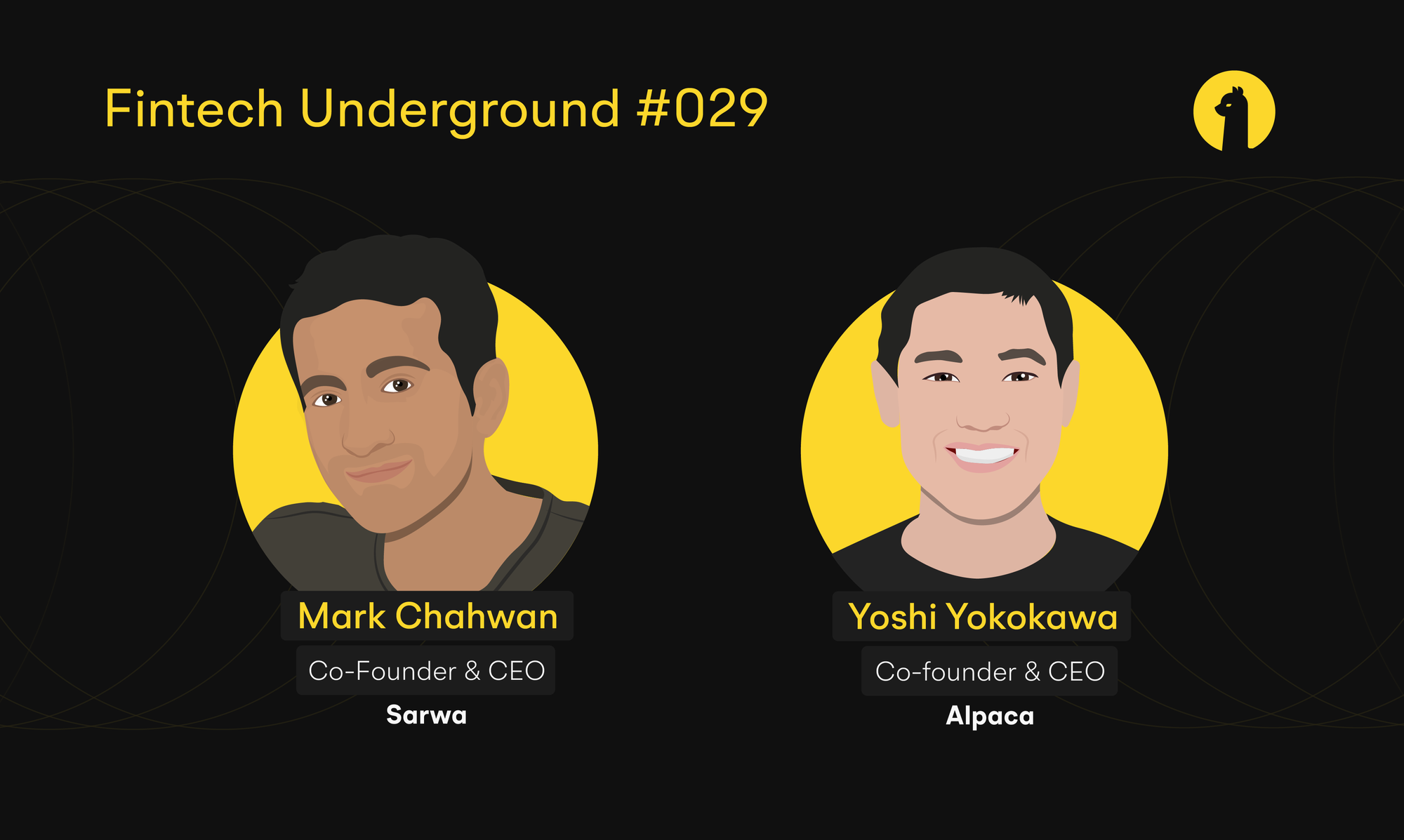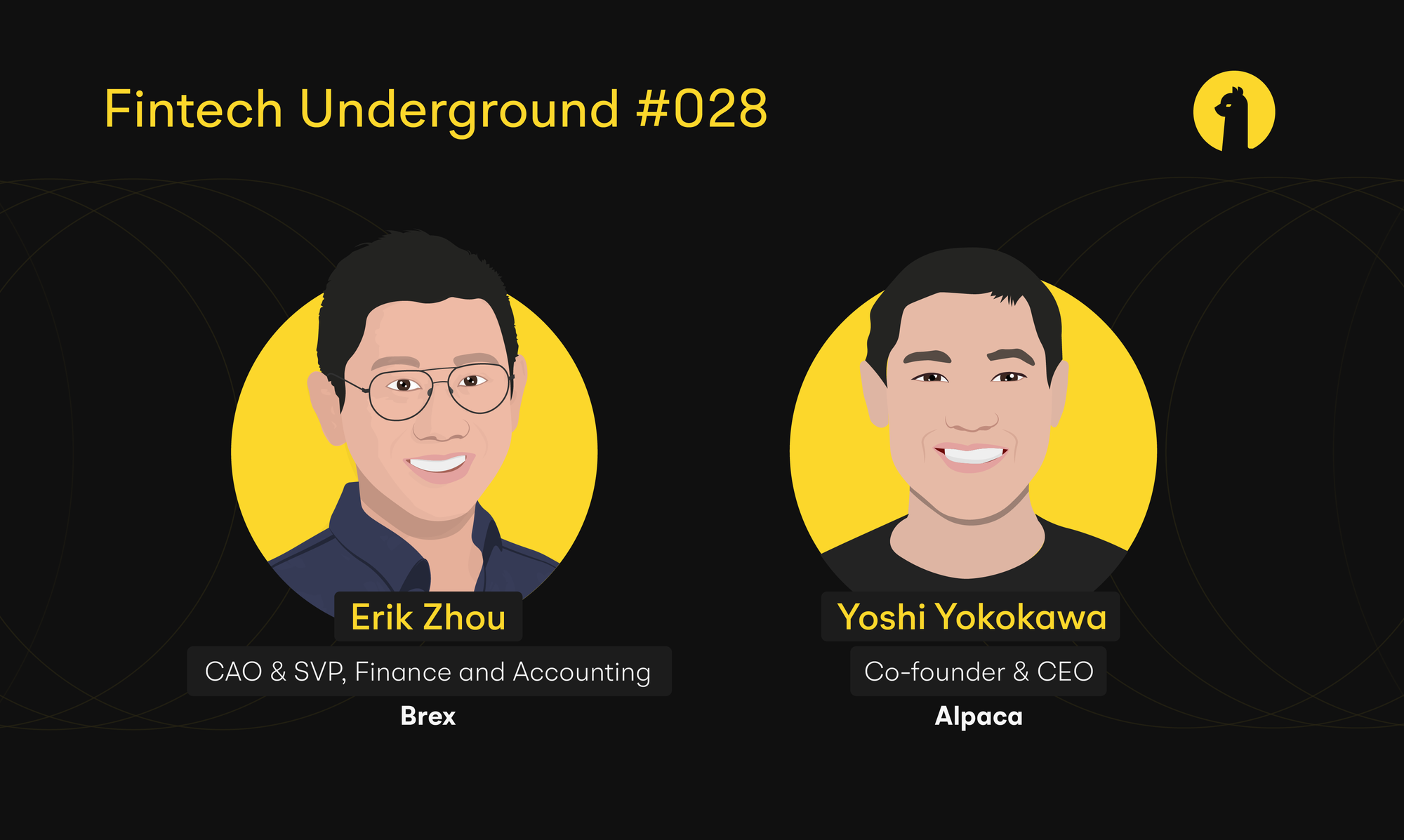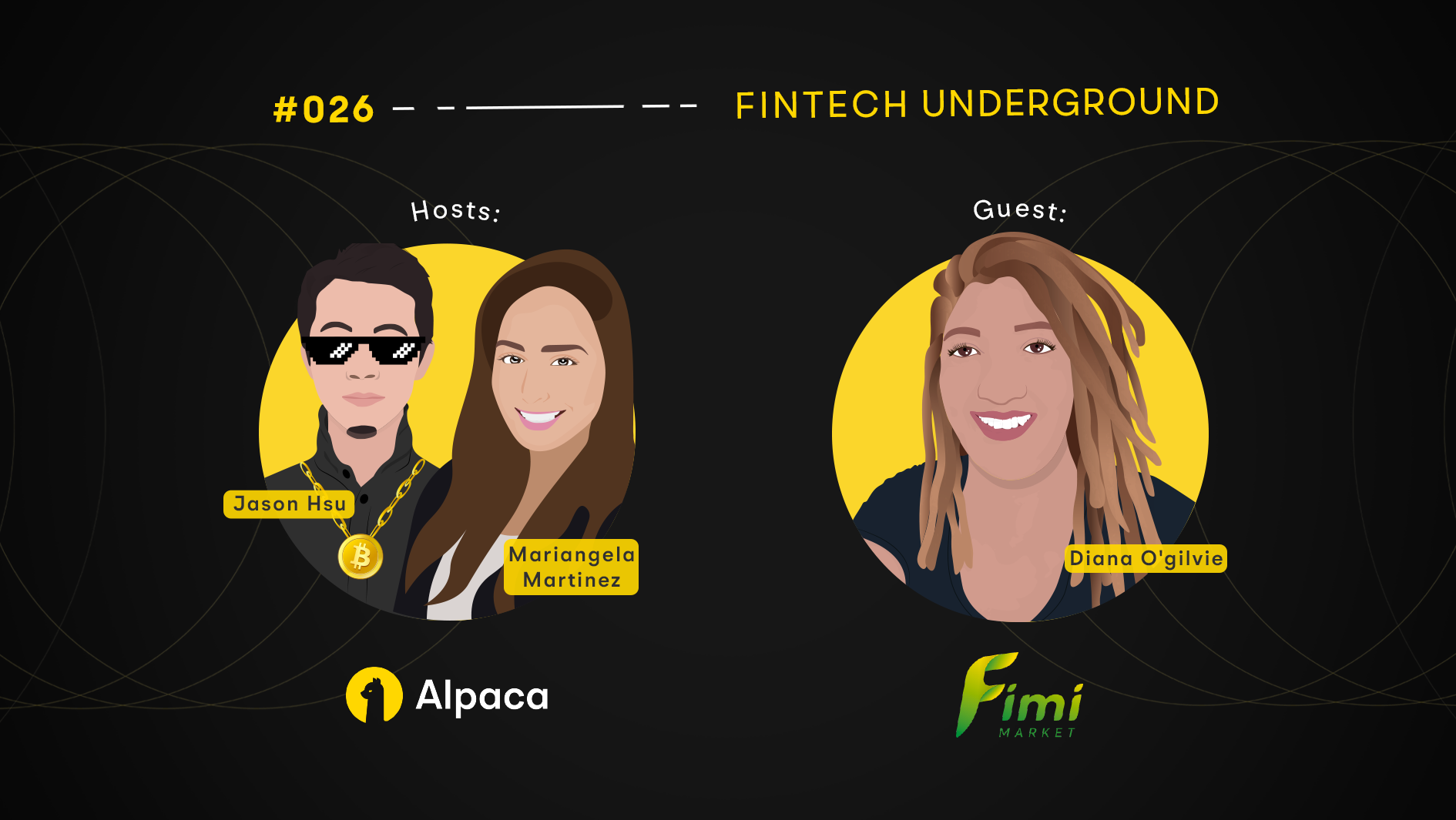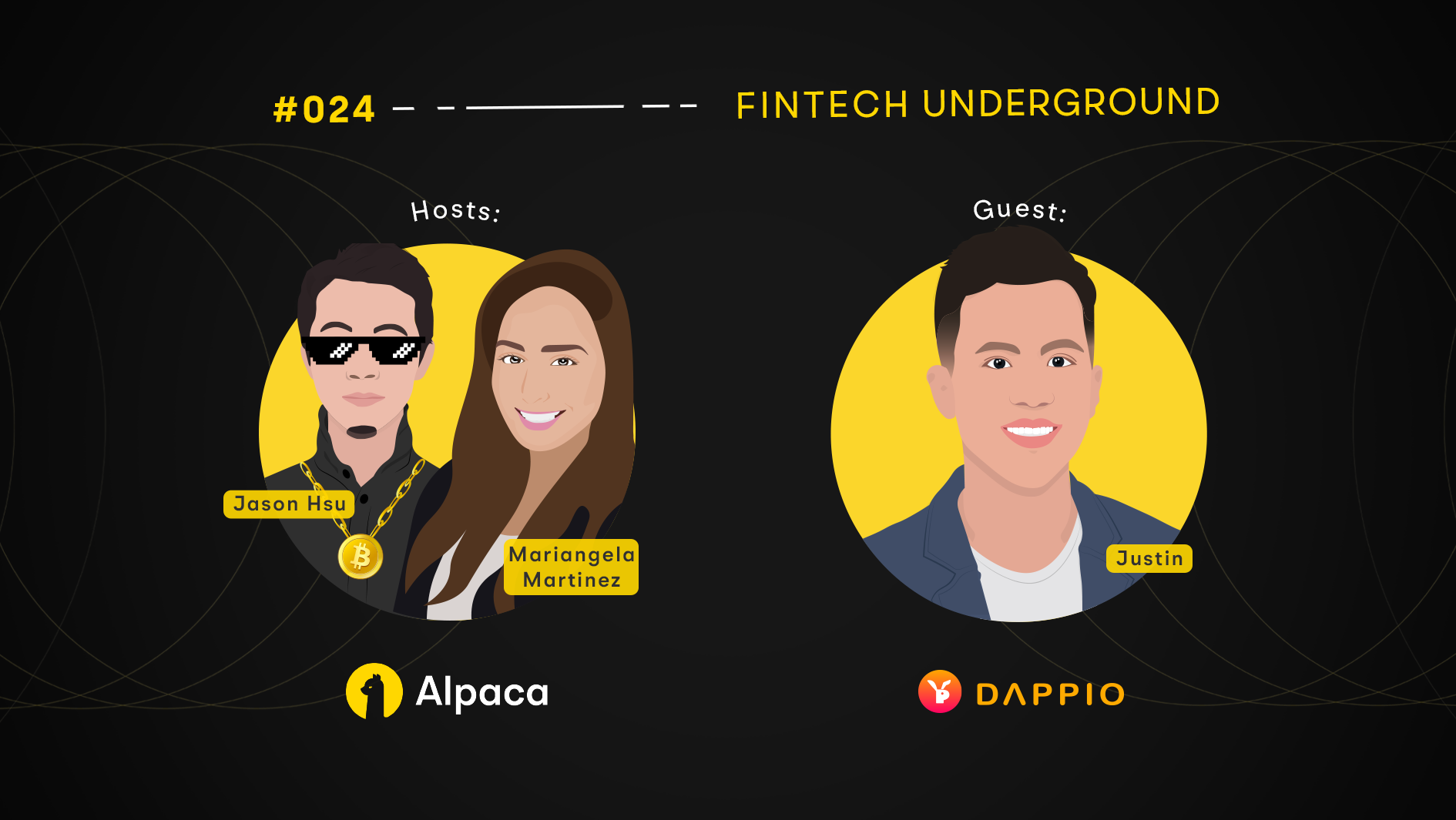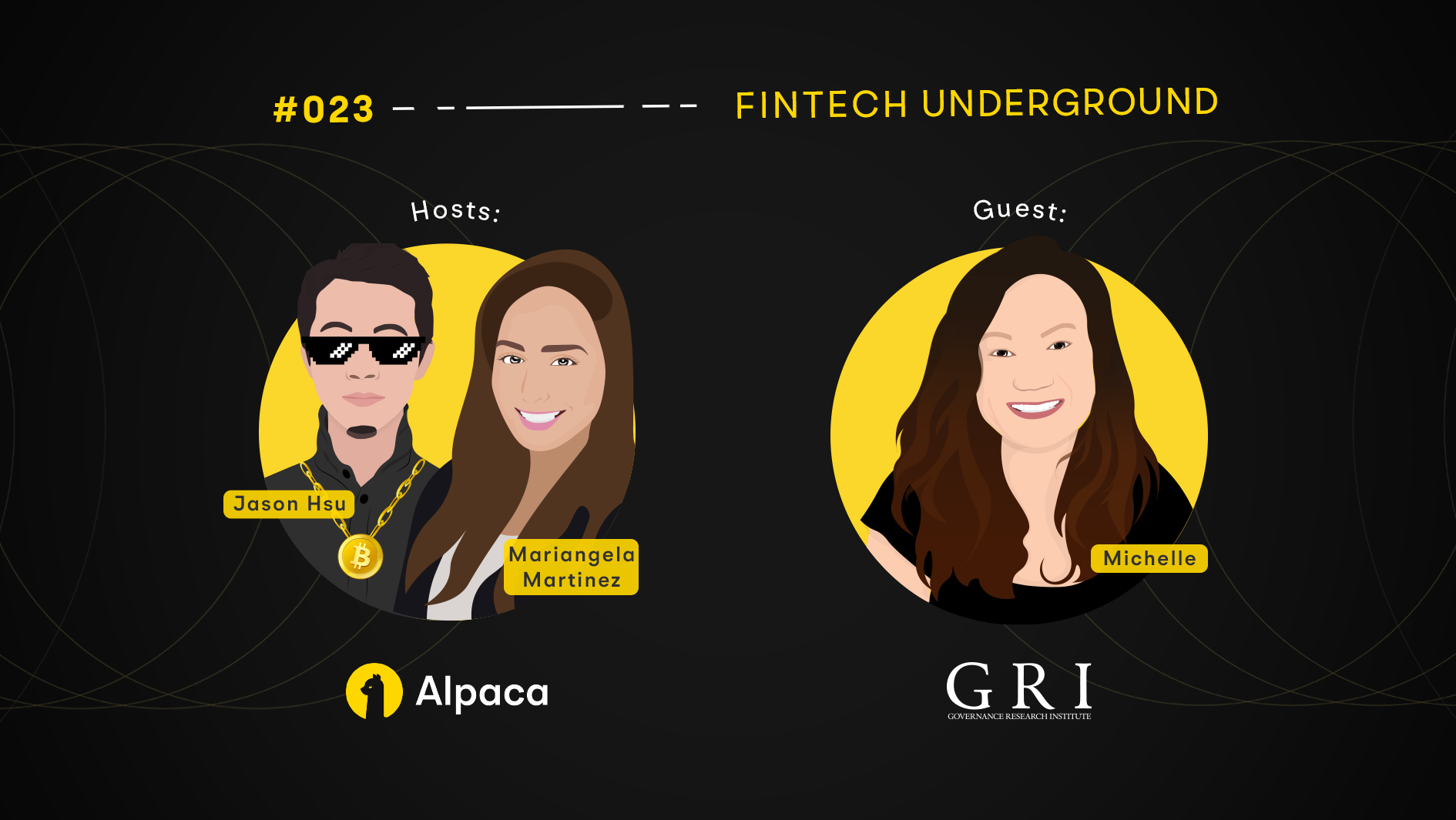Any opinions expressed are opinions of the host and their guests. Alpaca Securities LLC does not recommend any specific investments or investment strategies.
Fintech Underground by Alpaca is a podcast devoted to all topics related to stock trading and APIs. From trading with algorithms or connecting apps or building out services, we aim to bring light to the different corners of Fintech.

TL;DR
On our fourth episode of Fintech Underground by Alpaca we interviewed Nitesh Khandelwal. As the Director of QuantInsti, a premier Algorithmic Trading Research and Training Institute, along with a Cofounder of a high-frequency firm, Nitesh discusses his prior experience in the algorithmic trading, startup, and fintech space.
Summary
As both a practitioner and an educator in the algorithmic trading industry Nitesh Khandelwal is well regarded in the field. Originally cofounding iRage Capital, one of India’s leading high-frequency trading firms, in 2009 Nitesh was at the forefront of algorithmic trading in Indian Markets. In addition, to be an avid practitioner, Nitesh cofounded QuantInsti in 2010 with a focus on providing quality education to all in quantitative finance and algorithmic trading. Today Nitesh describes a bit more about the process of starting both of these companies along with some of the challenges they faced. Finally, Nitesh provides an overview of the programs QuantInsti offers from a no-code environment in Blueshift to their educational series EPAT and Quantra.
Find the full transcript below. To hear more CEO/Founders of the most interesting Fintech companies speak about their experience in the industry check out our other episodes below:
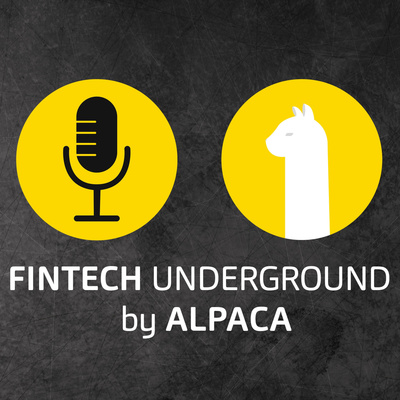
Full Transcript
Jason: Welcome to Fintech underground by Alpaca, a podcast devoted to stock trading API from trading, with algorithms to connecting apps, to building off services. Alpaca is built for developers and traders. And with that being said, let's get started. Hello everybody. Welcome back to FinTech underground by alpaca.
[00:00:17] In each episode, we aim to explore a different area within FinTech. Today. We are lucky to have Nitesh the director of Quantinsti a premier algorithmic trading research and training Institute. Our host today is Yoshi CEO and co-founder of alpaca. With a wide array of courses, webinars, blogs, and more Quantinsti provides high-quality education in this domain, not to mention blue shift their free backtesting engine with access to us and India data.
[00:00:42] So let's get started.
[00:00:44] Yoshi: Hi, Nitesh how are you? Thank you for joining the podcast.
[00:00:47] Nitesh: Hi Yoshi. I'm good. And thank you so much for inviting me over and I hope things are going great at your end.
[00:00:53]Yoshi: Yeah. Today we're going to talk about a lot of stuff at our FinTech underground, but firstly, I think like I want you to really introduce what you do because I know.
[00:01:04] You do a lot of stuff, including trading to the education. So like, you know, could you please like, you know, do a brief introduction of what you do.
[00:01:12] Nitesh: To give a brief idea about the things that we do. We have been into the algo and quant trading space, primarily through the ventures that we started. So me and my colleagues from our business school and my bachelor's from a business school and technology school, we started off with something called iRage and 2009.
[00:01:30] So about 12 years back, 11 and a half years back. And you started off as an algo trading business and we were all focused on the algo trading side of things. And today iRage is one of the leading high-frequency trading firms in India. We are market-makers and a good number of asset classes and contribute a significant portion of overall exchange volumes here.
[00:01:50] So we are clearing members ourselves. So clearing members and trading members, and it's entirely proprietary to trade or there, so no client or investor capital there. But we also have something called iRage asset management, which is a relatively new venture, which is more focused on asset management.
[00:02:06]While we were all founders were focused on the iRage business. I was leading the trading business ups in 2009, till 2016 in sort of Mumbai and Singapore. So. While you're doing that. We also started something on QuantInsti
[00:02:18] Yoshi: Well, we know the best about, yeah.
[00:02:21] Nitesh: Yeah. So, so that's iRage is you can say more inward-looking business, right?
[00:02:27] So of course because you don't have clients, you don't have investors, you don't you just going out there, trading in the markets, and getting out of yourself. So that's about it. But QuantInsti is more of a where you are creating products and services, which can help. A wider audience out there.
[00:02:43] And that was the idea when we started it in 2010 and 2016, 17 I moved my full-time focus towards the initiatives that we were taking in QuantInsti. So Quantinsti focuses. Again, this domain remains the same. It's algo and quant trading, whatever we do, it's all around that. But in QuantInsti is more towards the education and the FinTech initiatives.
[00:03:05] So in education, we have products like executed programs and algorithmic trading, which is like a six-month-long certification program for professionals who want to switch to this domain or want to upgrade their knowledge in this domain. So that's the live online program. Then we also have something called Quantra.
[00:03:23] Which is more of self-paced learning where we have more than 30 courses, which are interactive courses self-paced but interactive. So that's, it's not just videos and multiple-choice questions, quizzes, but also has interactive exercises in Python where the machine is guiding you all through. So that's on the lines of learning, but what we also have started, and three years back, we started with an initiative called Blueshift.
[00:03:45] And in Blueshift, what we have done is that you can create. Any type of strategy you share with the complete CP engine instead of a rule-based engine, it's something where you can create anything and everything that you want to, you can do it in Python. You can also do it recently. We launched a visual interface also.
[00:04:02] So so you can even if you don't know the program, you can try that using time series analysis or machine learning algorithms, all of those things you can do. Both in programming and no program would. And now what we have done is that we have also integrated with started integrating with the brokers alpaca being one of the first in fact, the first newest that we integrated with.
[00:04:21]So now the idea is that anyone can. Learn as well as backtest research, execute paper, trade, live, trade, all from the same platform. In fact, recently we even integrated the quantra and the blueshift platform, which means that those are learning. They can, whatever you're learning, you can actually try it out in paper trading or live trading if you want to directly from the learning backbone
[00:04:43] Yoshi: Great. I mean, like, you know, you're doing like, you're basically starting from the HFT fund manager to the, basically like a building the education platform now to building the software service to really like, you know, expand this algo trading industry. But I think what's really interesting to me is that looking at a lot of applications with regards to FinTech apps or algo trading-related services.
[00:05:06] Most of the people actually really don't come from a real hardcore, actual experience of you know, managing money and doing that, you know, HFT, like, which is super cutting edge. Like what was your motivation and the turning point that you actually went from, like hardcore HFT trading and then, you know, starting the education and services instead of the other way around right.
[00:05:27] Nitesh: Yeah so I think the way it worked for us is we started the HFT proprietary trading then to fund management into the education and FinTech ventures. Another thing, the common theme here is that we have not switched from anywhere to anywhere. So it's something which has been there. The iRage business has been growing at a good pace and other things are also getting along pretty well.
[00:05:50]Now the thing is that part we have done is that we've constantly expanded our focus in terms of more things that we can do. So be it in terms of like from proprietary trading, we expanded a bit to see asset management, which involves other people, which can be, you can say a part of a slightly bigger industry.
[00:06:08] Right? Similarly in QuantInsti, when we started QuantInsti, okay, 11 years back, there was hardly anything this in this domain. And we were probably early or we were on time. I don't know, but we started off with education, which focused on the algo and quant trading sides. And then it constantly, we constantly tried to keep on expanding our, our domain while.
[00:06:30] Keeping ourselves within the algo and quant trading space, which is our 40, which is our, which is what we understand, which is all everyone in the team. So we have about 40 or 50 team members who have been focused and passionate about this domain of quant and algo trading, which really actually helps. So being in that area, having a good understanding knowledge of it and expanding step by step to more services products, which can complement each other and help the users.
[00:06:56] Get the most out of us,
[00:06:58] Yoshi: I feel it's unique, right. Because like, you know, I also come from you know, more of them, I guess like investment banks, capital markets background, instead of the tech. And I feel, you know, people tend to think, okay, if we're making money, that's cool. But like, you know, you kind of try to expand this, how you grew up to be the HFT fund manager.
[00:07:16] Into, like really more people through education. So it's kind of unique. Like, what was your background even coming to this, like, you know, financial world, because I can, I know you worked a little bit bigger, you know, firm as a fund manager as well. So like, what was your upbringing and deciding to go into the, you know, finance sector in general?
[00:07:33] Nitesh: I think I did my engineering in electronics. Majored in electronics there. But when I was doing that, well, I had a certain passion for microelectronics, but I kept on looking for greener pastures. You can say probably. So I was constantly evaluating what excites me most. So I tried my hands on marketing while I was doing my undergrad read the quarter into the end.
[00:07:54]And then I tried web development software. A lot of things we had, I think a lot of temper because during the undergrad studies and then I saw one fine day. I got into some stock game or some trading and while still in my undergrad engineering school and I got myself hooked there.
[00:08:13] And then I started learning and reading a lot of newspapers and I think paper, all the big newspapers and it, it really clicked. So then when I went on to do my studies and my business school, my master's in business administration and finance and economics. So that was, it was already kind of decided in the mind that this is what I'm going to do.
[00:08:31] And in fact, while we were in the second year, the final year of the MBA program, we actually started off with the iRage. At that time, just to realize later on that algo trading was not really allowed in India at that time. So algo trading got allowed in India in 2008. So, but when it was allowed, then obviously we gathered together, back again and the four of us
[00:08:51] and we started it right then because that was always the motivation or the dream you can say to create something in this domain. So we. Had been quite an enthusiast about this domain even before this domain got opened up in India, at least.
[00:09:05] Yoshi: Well, so, so like, you know, you went to engineering school, that was your focus, but like you kind of found out like, you know, this industry be fascinating and you actually took really bold step.
[00:09:16] Like, you know, doing something with your basically partners and friends with you know, four of you. Like I think like, you know, I only see this kind of legendary story where like, Ray, Daleo started this thing by himself. You know, Ken Griffin, Citadel, like, you know started doing this in his, like in what he's a Harvard dorm room, but basically that kind of story, right?
[00:09:36] Like, you know, did you know, anything like, you know, how to be a fund manager doing algo trading. Like, what was your, you really experienced starting out your firm? At the very, very beginning
[00:09:45] Nitesh: initially, I think we had some experience, not a huge amount of experience between the four of us. We had some experience working in the banks and the treasury.
[00:09:54] Side of business on the trading side, on the structuring side, some of us had experienced working for the algo trading firms in Europe. And other countries and also some, a bit of experience in the brokerage industry. So collectively four of us had some exposure which made, up for the shortcomings that each one of us had individually.
[00:10:13] So, so together the team worked. So, so that was just I think that was something which was helpful.
[00:10:20] Yoshi: Did you start with your own money only, or like, you know, how did you raise your funds at the very beginning?
[00:10:25] Nitesh: Almost all the ventures. We have largely bootstrapped our way into, into them. We have grown organically mostly.
[00:10:31] So we have raised some capital that very in some of the ventures, but they are very, very minute you can say. So it has been mostly the partner's capital and which we have used to grow. And I think the way it helped us is that we were only able to grow the things which really had some business sense, right.
[00:10:50] From the beginning. So there, you know, there are things which may not make sense initially, but really it makes sense later on, which was not that much of an option at least in the initial years because you need to have it sustained. You cannot, you cannot support too much. But yeah. Now, as we have expanded we have been trying to take initiatives where we do not need to enter into that where we can look at the long complaint as well. But yeah, it's, it's mostly been bootstrap that so far and has been growing organically and has got into at a decent place where we can look forward to expanding even more.
[00:11:22] Yoshi: So I'm just, you know, kind of going deep into this your initiation of the fund story because I think this is a super interesting part. Where, like, I think the listeners who are like, I have this great algo trading strategy and like, you know, how can I actually start this thing to be a, you know, the business.
[00:11:40] Right. And I feel like, you know, without raising funds, like how were you able to basically manage to get pay yourself? You know, you have to grow your assets under management at the same time, you have to pay your four partners, right. To actually eat and live. Like, how was your experience there? You have to, like, you had to make like, like extraordinary performance to do that.
[00:12:02] Nitesh: So I think the way we started we tried to do whatever we could get the ball rolling and get the income stream intact. So what we had what we did was we were actually responsible for setting up most of the institutional desks, algo trading desk in India. So we especially the large, large ones, so where we provided turnkey solutions or services to them and helping them set up their execution desk set up there.
[00:12:28]Algo trading, software, all of those things, which kept the bills paid for us. And later on, as we expanded, then of course we start that to avoid any conflict of interest later on. So then we step by step. We then took our own membership and keep on putting in more capital. So some of the partners who were there right from the beginning with us, so they also had access to capital.
[00:12:49] So not from the operational, you can say, not from the operational point of view, but from the trading point of view. So, so we always had the access to assets under management. If we could show something promising
[00:13:00] Yoshi: So you had a kind of business plan where you don't have to complete a hundred percent rely on the performance of your strategy, but you kind of like, you know, have this business plan to leverage that things.
[00:13:12] To actually get the pay stream. I mean, that's a great hack and you know, I think a lot of listeners appreciate that. Like, you know, I think there's a bunch of the stories that are not really told, but like, I think that people just, you know, fake it till you make it right. So I think those are the stories that actually, in my opinion, do matter to a lot of people.
[00:13:29]Nitesh: Whatever, every business that you see, even the really big ones, which look like Staggering success. I think it takes a lot of time and patience and hard work and failures to get there. So I remember a very famous quote by one of the top Indian tech leaders Dr Narayana Murthy so the founder of Infosys co-founder of Infosys and he said that, that.
[00:13:51] It took us 14 years to become an overnight success. So, so that's, that's I think the beautiful part of it that as you rightly mentioned, just now that the stories which are told are that how it became a success or how it grew so fast, but the road till there, I think it's generally a challenging one and it helps if you have some plan in place.
[00:14:14] And if you are able to put in. Decent amount of thought into what will keep the business sustainable. So, so that's, that's important, I think in today's. So there's, there's more of personal thought and I think my like might be digressing a bit here, but in today's world where the capital has been really cheap and in the last decade or so the risk-taking abilities have increased of course, where you are able, you're willing to put all the eggs in one basket and go all in, which does not.
[00:14:44] It's not really always the case in all types of economic circumstances and may not be advisable at all times. So going all out. Great. You do need to at times, but that should not be the default strategy.
[00:14:57] Yoshi: Makes sense. And I think you mentioned about going all in, like, was there any situation during your career, like after you started your business and you know, this fund, the management as well, was there any occasion that you did like very close to this?
[00:15:10] All in. Kind of bang in the past. Oh, you did. Okay. Could you tell us a story about that?
[00:15:16]Nitesh: In the early days? So first one year, four months. So for the first year, three months, four months were really tricky for us because we were trying to get in whatever we can, but we were obviously it's not in your hands.
[00:15:29] So we were getting something, but, but I think the people are. Almost broke towards one year, three months stage and almost zero in on money next to default and certainly in a couple of weeks it was really stressful. Two or three weeks, I would say December of 2010 early Jan 2011. And suddenly in the middle of Jan, something clicked and then it became like, okay, here it comes to money.
[00:15:53] So, so that's okay. So, so, but till that time, that was, I think, a bit of a struggle where you don't have anything and then you are almost getting exhausted with all the options, but you sustain you a come into perceive a bit. Yeah. And I think Thankfully for us, it came at the right time.
[00:16:10] It didn't test us that much. It did test us, but not that much, thankfully.
[00:16:14] So there was a hard time, you know, happened even though like, you know, you now have a bunch of the businesses going on right now, but let's talk about that blue shift and you know, QuantInsti and a Quantra, like all those things, the education part, but.
[00:16:29] Yoshi: Is there, like, you know, any vision or like, you know, kind of ultimate goal you're trying to achieve by like expanding this you know, business sector, as you kind of now transitioned away from the fund management now into more of the education and part, like, what is your ultimate vision? Like what are you trying to do with all that force that you're at, like launching right now?
[00:16:47] Nitesh: So what we are doing at QuantInsti is ultimately enabling and power and empowering the users who want to learn and use the tools where they can use the power of statistics and financial computing for their trading processes. So that's the top vision for us, where we are, whatever initiatives that we are taking a beat on the learning side of the blue shift or the new initiative that we are looking out for.
[00:17:17] So in all of them, the idea is to help users to use these statistical tools use, to use these national computing platforms and the. New age cutting-edge techniques would use machine learning not just for trading, but even for other aspects of investment and trading. So we're trying to offer that.
[00:17:38] And the idea is that also none of the ventures that we have to suggest or talks about get rich quick. Kind of thing or Hey, here it is. And see how easy it is going to,
[00:17:49] Yoshi: But everyone wants to be rich and successful as you with you know, algorithmic trading. Right. So how can we do that
[00:17:57] Nitesh: for us? I think it has been a long journey. It continues to be a long and tedious journey, but yeah, I think in our wench, in our initiators, we have tried not to showcase at any point in time. Like, okay, you learn this, you do EPAT program and you will become an expert who will know everything and you will make a huge amount of money. That can be objective.
[00:18:17] That's great. But that cannot be the starting point that does this program. And you'll make a lot of money, Use Blueshift and you will create a strategy you'll love. No, you will learn the concepts. You will have the tools. It is ultimately on you, how much time you're putting in how much effort you're putting in how diligent you are putting it, putting those efforts and the time you're putting in.
[00:18:37] And if you do it right, then the probability is on your in your, is in your favor.
[00:18:42] Yoshi: Well, I think like the blue shift that really connects to this you know, of course, like easy to write code, of course, like in the Python to now, like, you know, no code to the low code movement that, you know, what we're seeing from that your own experience, like, you know, actually making a, you know, very successful strategy and like running the business of algorithmic trading.
[00:19:01] How does that no code low code tools and services. Look to you. Like when you were back in the day, trying to build strategies, that'd be really possible by this no-code, low-code somewhat limitation. The restriction.
[00:19:14]Nitesh: What we believe is if I was given a platform where I was restricted, To do only these kinds of things.
[00:19:22] I don't think we have would have been able to succeed. So as a reach wherever we are right now. So in terms of trading and strategies, it would have been really near impossible to reach to, a sustainable consistent profit-generating strategies. It's really difficult. And that's why if you see in blue shift we have, as I said, that we do not tell our users that it's going to be easy.
[00:19:45] And we when we. Say no code. It just means that you don't need a programming background. So syntax might not be a problem, but you will definitely, it's not going to be easy. So the platform, the low code, visual coding platform that uses a Blockly in the blue shift. So which is essentially a project by Google and MIT open source project by MIT and Google, which we have a
[00:20:07] then tried to use that from Google, from the trading perspective, since we understand, and we acknowledged this fact that it takes a huge amount of effort and you cannot be restricted by trying to generate consistent strategies, which can be consistently profitable. So, so what we have done is that Blockly, and in Blockly, the way it is implemented is that you can do almost.
[00:20:29] Everything. And it's not very easy to use it, but it's not really a difficulty there. So a few days of dedicated effort and you will have a good sense of how to use, how to move the blocks. So that should be there. It's a complete, as I was saying at the beginning, it said complete CP engine even in the no-code environment, which means that you can pull in all sorts of libraries of statistical time series based libraries or machine learning, various machine learning libraries.
[00:20:52] We are also in the process of, I think. We are already in the testing phase or we are just rolling it out. Tensor Flow and Keras, In the no-code environment as well. So we are doing all those things, which make sure that users, the only problem that you're trying to solve is that okay? You don't know python okay you don't have expertise in Python.
[00:21:09] You can use this platform, which is. A code innovate coding platform, but it's local, you can say. So it's you will not be writing codes, but you will be moving blocks, but you need to know how it goes and it then generates the Python code as well. So you can go and edit it. We want to, if you are an expert programmer, you can, or even intermediate program when you can move from.
[00:21:29] the visual interface, copy the code and move to the python interface as well. So, so that's possible.
[00:21:34] Yoshi: So basically, I think with the, you know, visual coding locally, like, you know, you are giving basically a lot of flexibility so that like, you know, even with the complexity of the, your strategies could be somewhat made because you know, it's You know, basically like he has no limitation.
[00:21:49] So yeah, in that, I think like when we were approaching, approaching the end of the time, but I think the question from the, a lot of tech background person, like, you know, people who, you know, majored statistics, mathematics, and even engineering and the tech side. So like, you know, those are the people who probably like, you know, you kind of have a little bit similar experience, like without the finance and trading background but, you went into that.
[00:22:12]Trading. And of course, like, you know, you partner with the three other partners who have different types of the background. So what would you recommend? Like, you know, if the person like that with the non-finance background to try to go into the really algorithmic trading world and you know, this Quant finance world, like, you know, what was your experience that you wish you knew, or like, you know, you, something that you learned.
[00:22:36] That you had to know that certain things that you didn't really know until you actually went into finance without having the background of finance.
[00:22:43] Nitesh: I think what we need in algo trading or in terms of skills, what are three primary pillars, three primary things that you need. One is your statistics and econometrics.
[00:22:54] That knowledge you need to have. The second is financial computing programming, basically. So that is something that you will need to have. And third is the financial markets and quant trading strategies or paradigms that you need to understand the market microstructure and other things. So, so which are more focused towards the financial markets.
[00:23:10] So these are the three primary pillars. Now, if you have two, a good understanding of two of them, You can pick up the three while you're doing it. And try to try to create something around that only if you have only one, then it might be a bit tricky to get started. So it's advisable that you first pick up the skills and there are a lot of resources, which are available, and get started from there on the question of what we didn't know when we started off was I think all the things that you only get to know hands-on so when you're starting a trading business, you always think that trading strategy is what needs to be there strategy is what I need and it will make him make me a lot of money in all those things. Actually, strategy is just a small part of it. What so trading is essentially if you're running it as a business, then you need to treat it as a business. Right. So in a business, there are always certain competitive edges that you need, right? So you need to have. Good access to the market. You need to have good processes to mitigate and manage the risk and need to have a proper compliance structure in place.
[00:24:12] You need to have the right relationships with the banks or with the exchanges
[00:24:16] Yoshi: That does sound like really a business, actually like it's getting more like unsexy. Yeah. So like in a sexy algorithmic trading and quant fin
[00:24:25] Nitesh: yeah so the beauty of algo trading is that it makes things a bit more boring. And the good part is that the moment it becomes boring, the probability of the strategies being positive, increasing. Yeah. So that's that
[00:24:43] Yoshi: That's really interesting to hear. I think micro-market structure parties a very interesting part because that third pillar that you've mentioned, it's really difficult to figure out. Right. Because like, nobody really teaches that really. And that's why I think like this game stop you know, hype what's happened with a lot of, I think.
[00:24:58] As wrong information talked about on the, you know, forums and the, you know, interviews. How do you think that you know, we could really, you know, have the people are aware of what's really happening about these like micro-market structure. I feel like those are really key, important things that people should know when investing as well.
[00:25:17] Nitesh: Yeah. Yeah. Yeah. And I think the problem is that you do not get those things from formal sources. Larry Harris is great it's a great book. I think, creating exchanges by Larry Harris. Well, that's a good book to get a formal understanding, so that's good. But beyond that obvious book cannot be updated in a real-time manner.
[00:25:34] So, so the things keep on evolving in market microstructure, and I think The, and in fact, even when we cover any EPAT program, we cover a market microstructure and detail and the way we have done it is we rely a lot on the actual direct sources of information, like exchanges, their websites or circulars.
[00:25:54] So, so that's what I think someone who is interested in this domain wants to pick, they need to be like. Really, really focused on making sure that they are very thorough with whatever new circulars that are coming in from different exchanges that are relevant to you. Run them through understand how what are the changes that are happening not just in the API side of the things that's okay.
[00:26:16] But even In the infrastructure and other things, which are quite important in addition to the formal micro-market microstructure, that most of the books are learning sources will tell you.
[00:26:25] Yoshi: Yeah, definitely. Definitely. So I think like being the industry, like, you know, talking with the people really, you know, it doesn't matter in this industry yet.
[00:26:32] Thanks for sharing that note. So yeah, as you know, as we are wrapping up, we ask this same question to the in the interviews, by considering all those complexities and of course, difficulty. And you know, dealing with also the boring stuff. Like if you're actually successful, I feel like, you know, FinTech is like kind of one of the industries that have a lot of unknown difficulties that I feel like we deal with compared to other industries.
[00:26:58] So concerning that like is it worth it, that you are pursuing. And they, you decided to pursue in this path compared to what you could have pursued concerning even the fields that you actually studied in.
[00:27:12] Nitesh: Interesting. Yeah, I think the way things have worked, I. See that this domain. And I can't say for the overall FinTech obviously overall FinTech industry has been booming as well, but this particular domain algo and quant trading thanks to the open-source evolution.
[00:27:27] Thanks to Python. Thanks to machine learning, data science. I think it's getting more and more commonplace. The market size. You can say it. Expanding like never before, more than a million people have been using QuantInsti sources every year now. And that number has been pleasing really fast. And we are seeing that across the industry, the kind of interest that people had 10 years ago, especially in the emerging markets.
[00:27:50] People didn't even know most people about algo trading quant trading. What's the difference. Things are now, there are a lot of people who do know, and a lot of people who are enthusiastic about it, to know more about it or to venture into it. So, so I think we are at the cusp of a new revolution where using all these no code code-based systems and all those things.
[00:28:11] And great interesting brokers like you API first who are looking at that, actually focusing on that primary core audience, I think that's going to be a game-changer. Great.
[00:28:21] Yoshi: Great. Thank you very much in Nitesh for coming to the FinTech underground. And thanks. You know, Nitesh is the leader in the algo trading education field with you know, the founder of the QuantInsti and also actually a practitioner of the algo trading you know, running the HFT iRage capital.
[00:28:36] Thanks again. You know, it was great talking with you Nitesh,
[00:28:38]Nitesh: Thank you so much, Yoshi it was, it was a pleasure. Thanks a lot.
[00:28:42] Jason: I also wanted to thank all of our listeners for joining us today. On this episode of FinTech underground by alpaca as always check out all of our past episodes on all major streaming platforms podcasts can be found. Thank you.
If you liked this episode of Fintech Underground by Alpaca make sure to check out our other episodes below:


You can also follow Alpaca and our weekly updates on our LinkedIn and @AlpacaHQ on Twitter!
Brokerage services are provided by Alpaca Securities LLC ("Alpaca"), member FINRA/SIPC, a wholly-owned subsidiary of AlpacaDB, Inc. Technology and services are offered by AlpacaDB, Inc.

